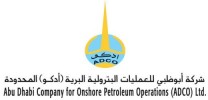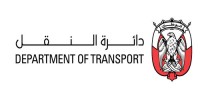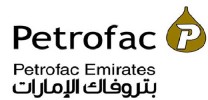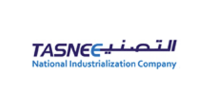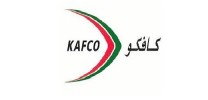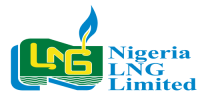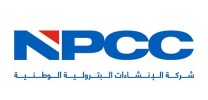
Writing a Financial Report
Course Introduction:
Our Writing a Financial Report program is designed to provide you with financial reporting and business skills that are applicable in a professional environment. Most financial reports are prepared quarterly and annually, although some businesses do them every month. Depending on the type of organization, financial reports are reviewed and analyzed by Boards of Directors, investors, financial analysts and government agencies. Write a financial report that includes an income statement, balance sheet and a cash flow statement.
Discover a structure to enable you to complete financial reporting tasks in a clear, concise manner for maximum impact.
Course Objectives:
By the end of the course, participants will be able to:
· Introduction to financial report writing
· Understanding financial information
· General structure of financial reports
· Preparation for report writing
· Writing the report
· Using a focused approach to report content
· Learn the report writing process
· Develop a clear report layout
· Test the effectiveness of the report
· Effective present the reports
· Focus on the objective, purpose and users of financial reports
· Understand the role of financial information within the business
· Review the basic structure needed to build up an effective report
· Gain insight into proven report writing methodology
· Understand how to focus the report content, keeping it short, to the point and extremely powerful
· Tailor the data available to you in the most concise and meaningful way
· Gain valuable tips for the presentation of your financial report to the users and decision makers
· Identify common errors in building reports
· Use techniques to prevent errors
· Display report results clearly in PowerPoint
Who Should Attend?
Accountants, senior and junior accountants, accounting and finance professionals, chief accountants, accounting managers and supervisors, financial controllers and any accounting and finance professionals interested in learning and updating their knowledge in writing a financial reports.
Course Outline:
OVERVIEW ON THE DIFFERENT TYPES OF REPORTS
· Financial statements
· Balance Sheet
· Profit & Loss (P&L)
· Cash flow statement
· Capital expenditure
· Operating expenditure
· Budgeting & forecasting
· Overview
· Other reports
INTRODUCTION TO FINANCIAL REPORT WRITING
· Understanding financial information
· Writing the report
· Using a focused approach to report content
· The report writing process
· Developing a clear report layout
· Testing the effectiveness of the report
STANDARDISED FINANCE REPORTING TERMINOLOGY
· Use of appropriate wording for the organization
· Use of the terms to express the concepts
· Acronyms that work for your organization
· Business language used in the organization and the finance and accounts teams
UNDERSTAND THE READER OF THE REPORT
· Writing the report with its reader in mind
· Understanding the receiving end towards a more suitable presentation
· Separating facts from opinion
PLANNING YOUR REPORT
· Working out the desired outcome of the report
· Delivering the facts without bias
· Anecdotes – How to provide evidence
STRUCTURING THE REPORT
· Executive summary
· Background
· The business case
· Alternatives
· The economics
· Express an opinion
OVERVIEW OF EXCEL
· Make Excel work for you
· Exploring the use of Excel for reporting
· Major differences between Excel versions
· Tool selection – is Excel the best solution?
· Advantages and disadvantages of Excel as a reporting tool
USING REPORTING TO PROMOTE ACCOUNTABILITY
· Key Performance Indicators (KPIs) and Metrics reporting
· Overview of dashboards and scorecards
· Pros & cons of pivot tables
· Formulas & other Excel tools
· Essential formulas & tools to know and how to use them.
· Applying absolute and relative cell referencing (e.g. A1, $A$1, or A$1)
· Named Ranges
· Basic formulas: SUM, IF, AND, SUMIF and VLOOKUP
· Selecting the correct formula
· Adjusting formulas manually
· Working with dates
· Error Prevention
COMMON ERRORS WHEN BUILDING YOUR EXCEL REPORTS
· Modelling techniques to reduce potential for error
· Identifying common errors
· Building a simple error check formula
· Assumption documentation
SOURCE REFERENCING AND ASSUMPTIONS
· Methods of assumptions documentation
· Linking to source referencing
· Writing operation instructions
· Budget reporting
· Variance analysis
· Creating an actual vs budget vs forecast report
· Building a variance analysis with ‘alert flags’
· Presenting the results and charting
SOURCE REFERENCING AND ASSUMPTIONS
· Using charts or tables to display data
· Creating a dynamic chart which changes according to variables
· Summarizing report data into a few key points
· Displaying data in PowerPoint
Course Methodology:
A variety of methodologies will be used during the course that includes:
· (30%) Based on Case Studies
· (30%) Techniques
· (30%) Role Play
· (10%) Concepts
· Pre-test and Post-test
· Variety of Learning Methods
· Lectures
· Case Studies and Self Questionaires
· Group Work
· Discussion
· Presentation
Course Fees:
This rate includes participant’s manual, Hand-Outs, buffet lunch, coffee/tea on arrival, morning & afternoon of each day.
Course Timings:
Daily Course Timings:
08:00 - 08:20 Morning Coffee / Tea
08:20 - 10:00 First Session
10:00 - 10:20 Coffee / Tea / Snacks
10:20 - 12:20 Second Session
12:20 - 13:30 Lunch Break & Prayer Break
13:30 - 15:00 Last Session





.jpg)








